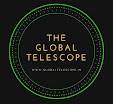Relevance of Balance of Power in the 21st Century | By Dr. Aarzoo Sharma
Relevance of Balance of Power in the 21st Century
By Dr. Aarzoo Sharma
Balance of Power is one of the oldest foundational concepts of international relations. We can find the idea in Thucydides’ ‘Peloponnesian War’, Hobbes’ ‘Leviathon’ and Kautilya’s ‘Arthshastra’. Even modern realists like EH Carr, Morgenthau and Kenneth Waltz have focused on this concept. Its status in international politics can be equated with Newton’s law of gravity in physics.
The basic logic behind this realist concept is straightforward. In the Westphalian world order which is anarchic due to absence of any “world government”, each state has to rely on self help to avoid being conquered, coerced or otherwise when facing a powerful adversary. Self help requires balance of power. Balance of power can be achieved either by internal balancing or external balancing- internal balancing is the internal buildup of military capabilities as well as economic capabilities as a foundation to strengthen the military power, external balancing is the formation of alliances with the like-minded countries against the prospective aggressor.
The relevance of balance of power has been questioned in the 21st century for multiple reasons. Firstly as 21st century saw the rise of the US as a single superpower, scholars like John Ikenberry pointed that ideal operating conditions for balance of power, like a multipolar world, do not exist. In a unipolar world, nations prefer band wagoning with the superpower or limiting themselves to soft balancing i.e., using non-military tools to frustrate and undermine the aggressive superpower.
Secondly, the growth of international institutions has increased the prospects of controlling the anarchy. Even Woodrow Wilson had held that international organisations like League of Nations will replace balance of power.
Thirdly, rise of asymmetrical actors like transnational terrorist organisations require asymmetrical balancing which requires nations to cooperate against these actors.
 |
| United Nations Headquarters, New York, USA | Photo by Matthew TenBruggencate on Unsplash |
Scholars seem to have varied opinions regarding the relevance of balance of power in 21st century. In the book ‘Balance of power: Theory and Practice in the 21st Century’, Jack Levy suggests that tendency to treat the theory as universal is misleading because the conditions in which it operates do not exist. Christopher Layne’s unapologetic realism continues to believe in the importance of the concept as the US cannot escape the fate of previous contenders of hegemony; we are already witnessing decline in the status of US as a hegemonic power. James Wirtz suggests that the concept is so “vaguely stated” that it is impossible to find a scenario that would be inconsistent with it.
Amidst all these varied opinions, we can agree with Robert Ross, who believes that balance of power is quite pronounced in East Asia. Let us extend the analysis to the Indo-Pacific region.
Till now, the Indo-Pacific region was under US hegemony. However, the unprecedented rise of China has challenged the status quo. There has been rise of other Asian countries as well, such as India, Vietnam and Indonesia among others. Hence, the region has now become multipolar. The rise of China is also seen as a threat by countries like Australia, Japan, Singapore and others.
Mearsheimer in ‘The Tragedy of Great Power Politics’ has suggested, the aim of China is not peaceful rise; the “Middle Kingdom” wants to displace US to become a hegemon itself. Realising this, the countries in the Indo-Pacific are going for countervailing coalitions- formation of QUAD is one such example.
Carnegie Foundation, in its report, has also pointed towards the need to form countervailing coalitions to ensure peace and stability in the region, as the “phenomenal” rise of China is leading to dangerous and destabilizing trends. Lowy Institute has recommended QUAD countries take next steps of deepening military cooperation, improving joint inter-operability, intelligence sharing, surveillance reconnaissance, logistic sharing and joint development of defense technology.
Thus, we can conclude that balance of power is still relevant in 21st century and will never lose relevance. David Hume is correct when he says that so long common sense is relevant, balance of power will remain relevant.
Author: Dr. Aarzoo Sharma “Political science, international relations and diplomacy had intrigued me since schooldays. Even though I became a dental surgeon, the burning desire to explore these fields made me reconsider my career choice. Ultimately I gave in to this childhood passion and dived into the opportunity to study these subjects. Join me in my journey as I explore the ever dynamic and exciting world of international relations.”
___________________________________
All views presented in the article belong solely to the writer. The editor does not support or condemn the views, and neither does The Global Telescope. The Global Telescope remains impartial and promotes every individual's right to freedom of speech and expression while not holding any responsibility for the views presented whatsoever.


Comments
Post a Comment